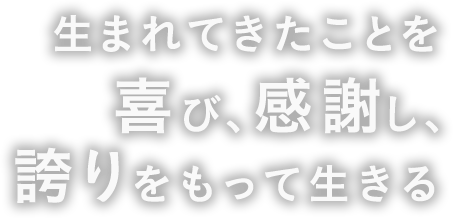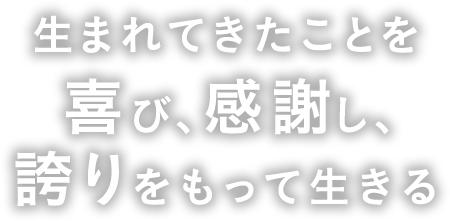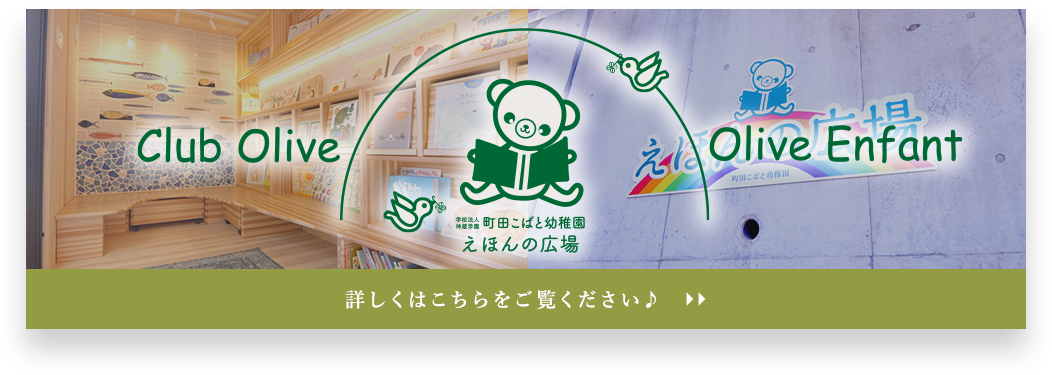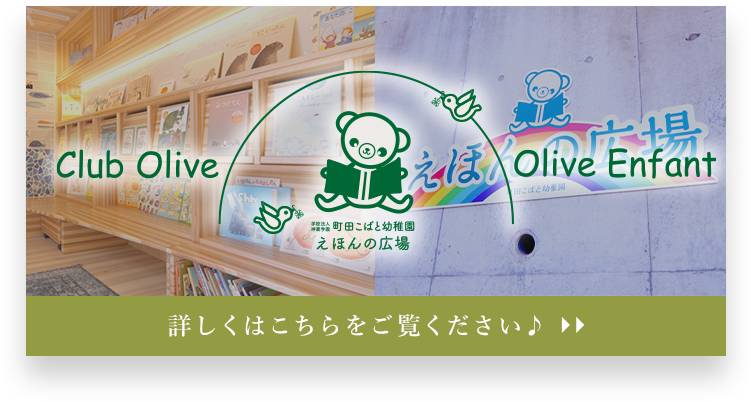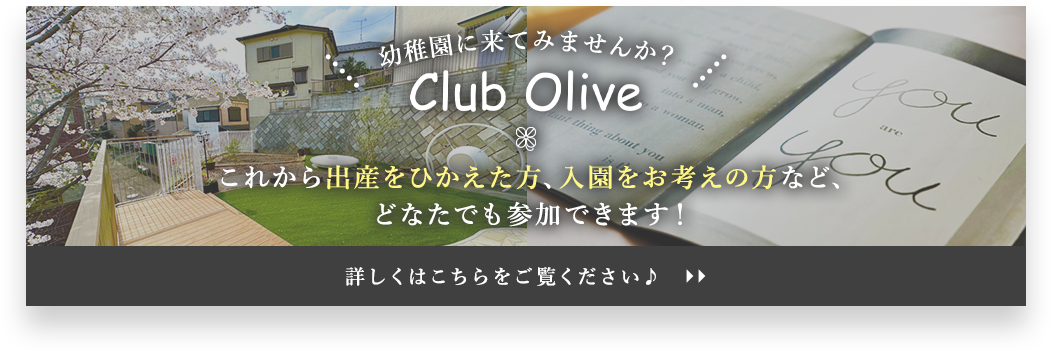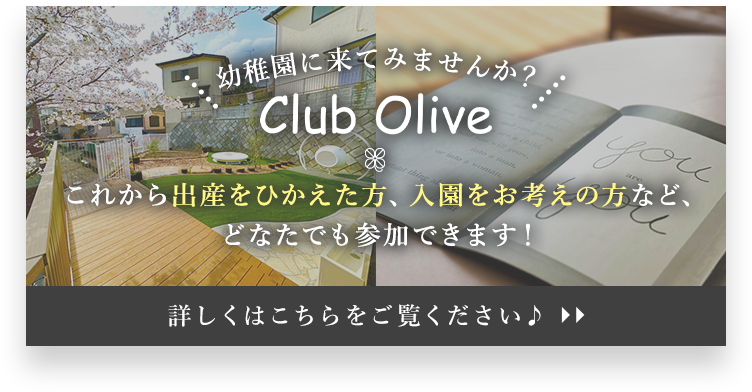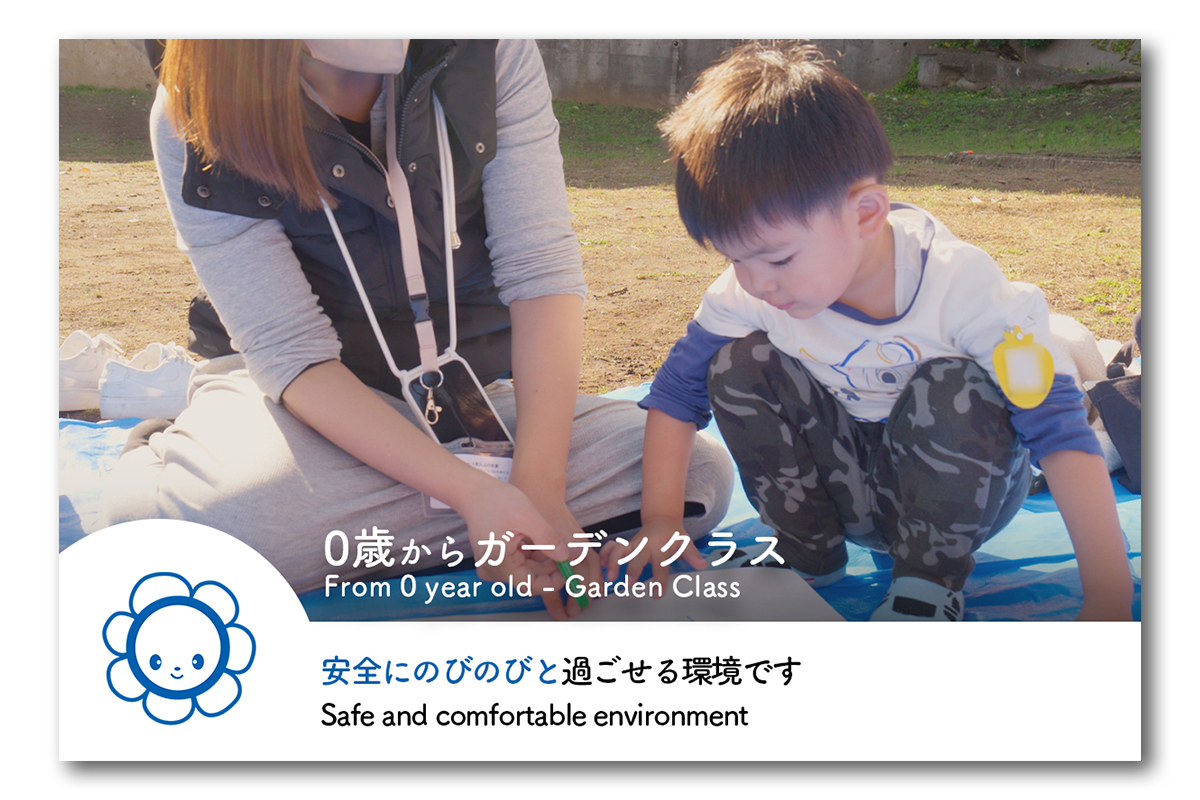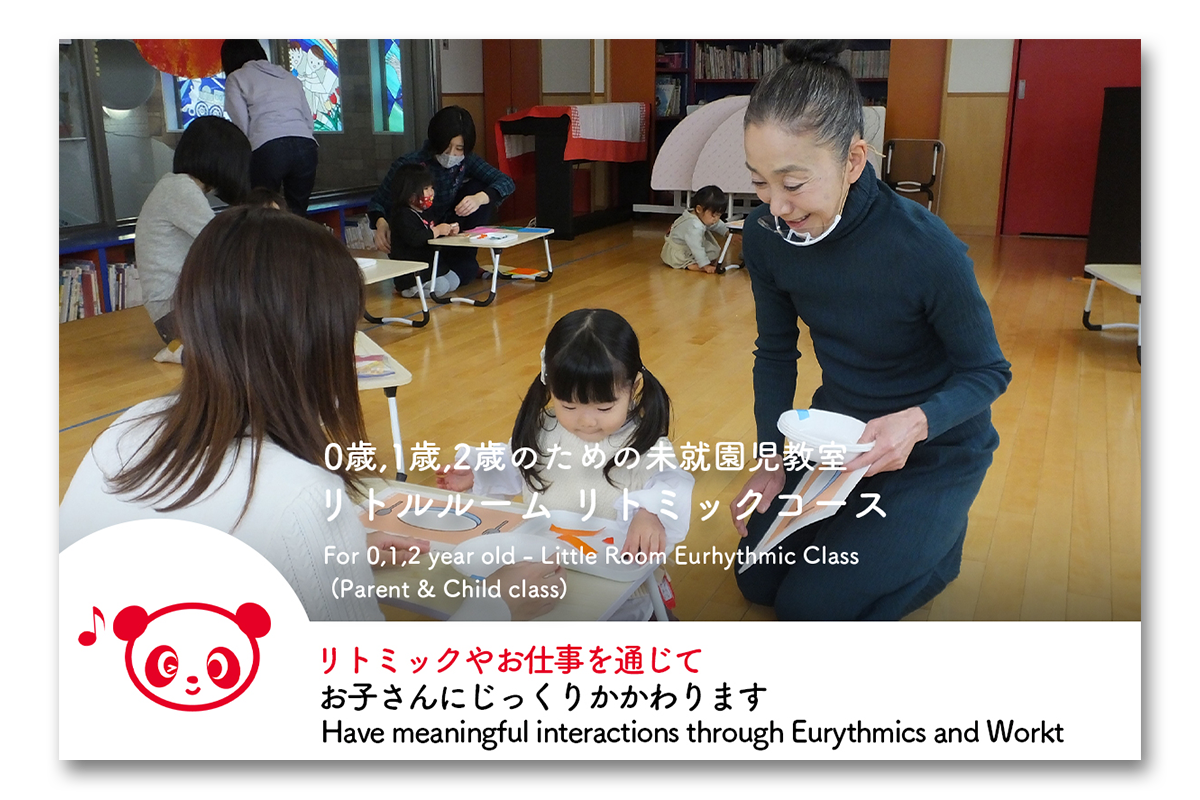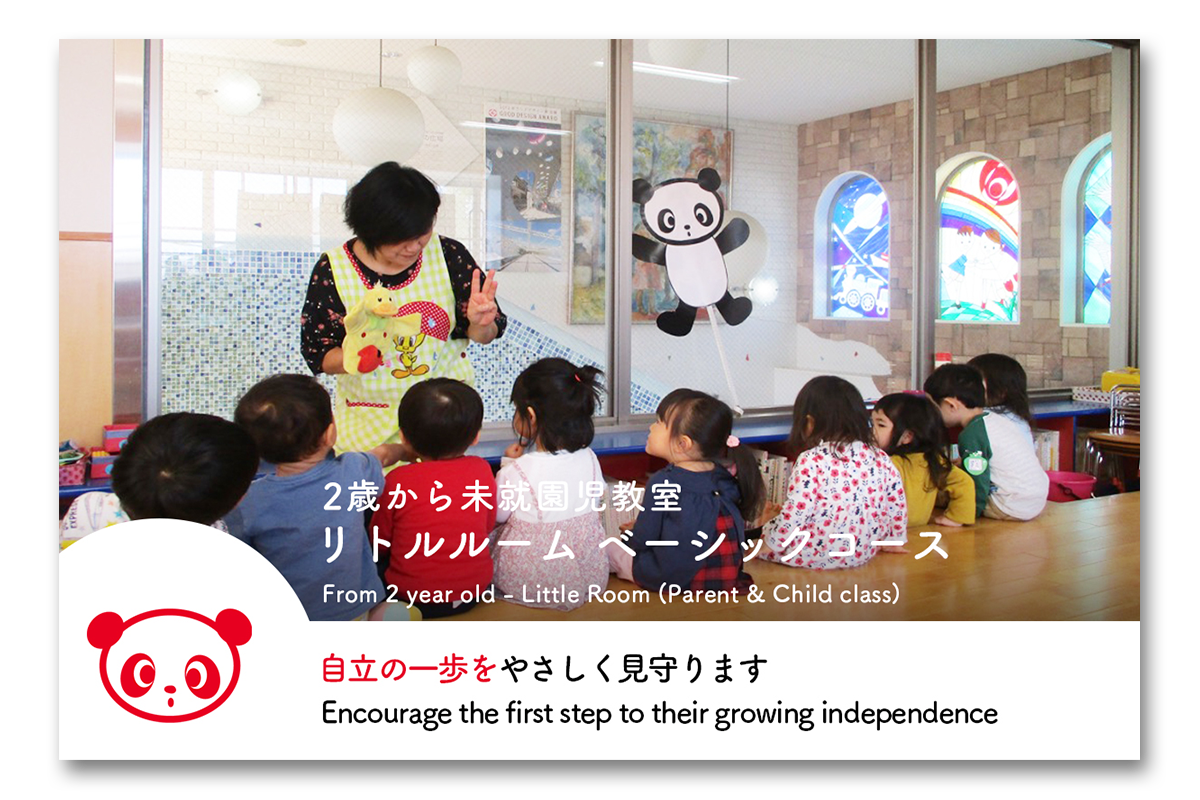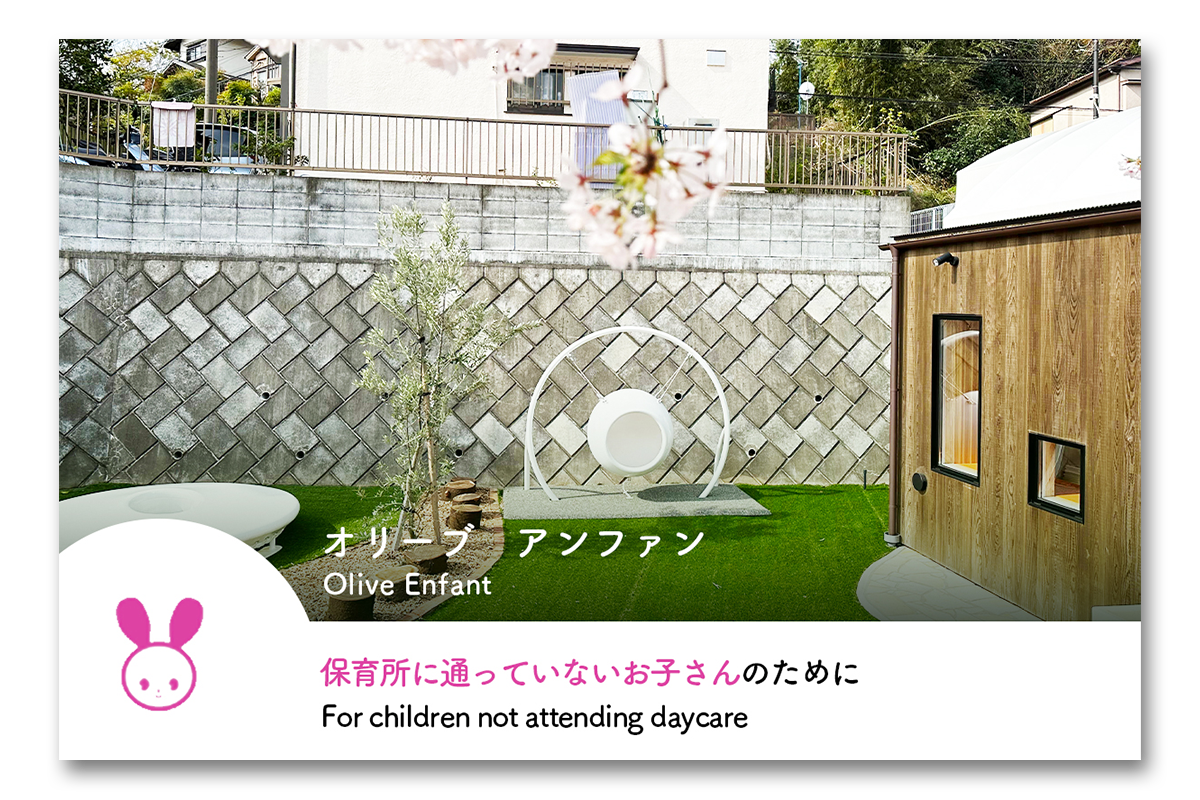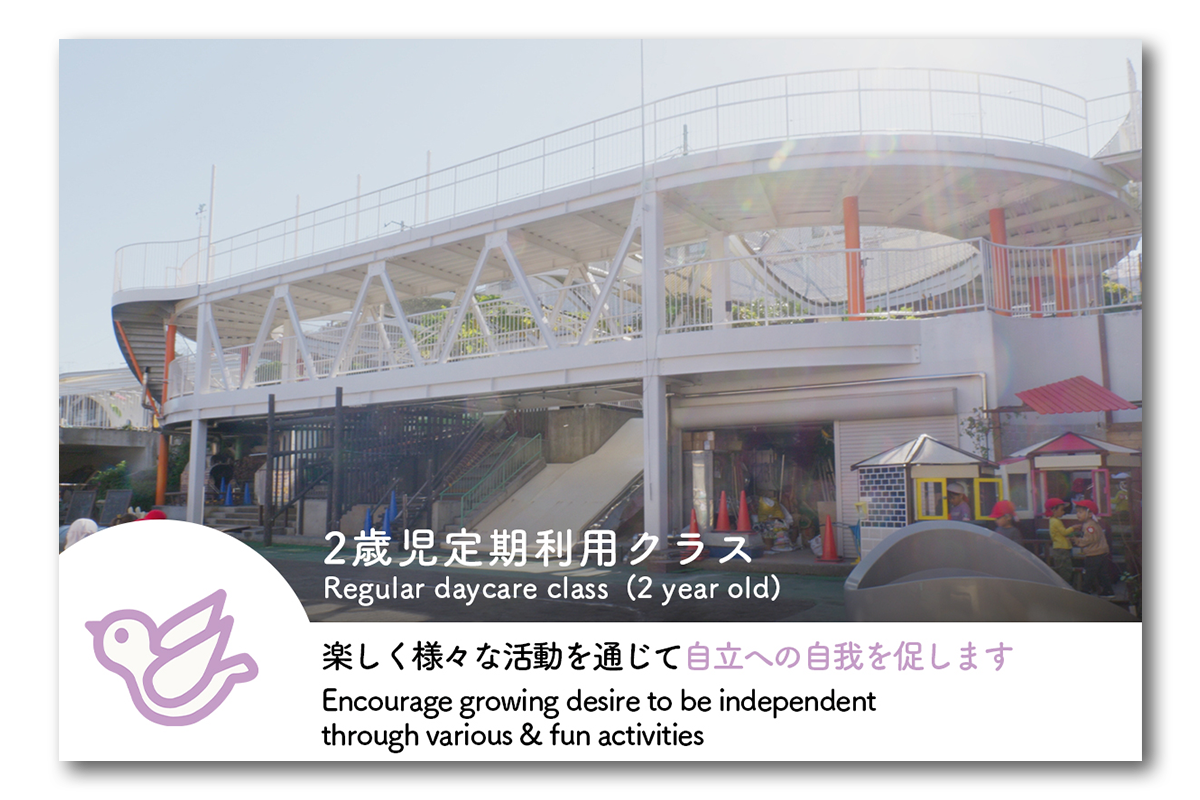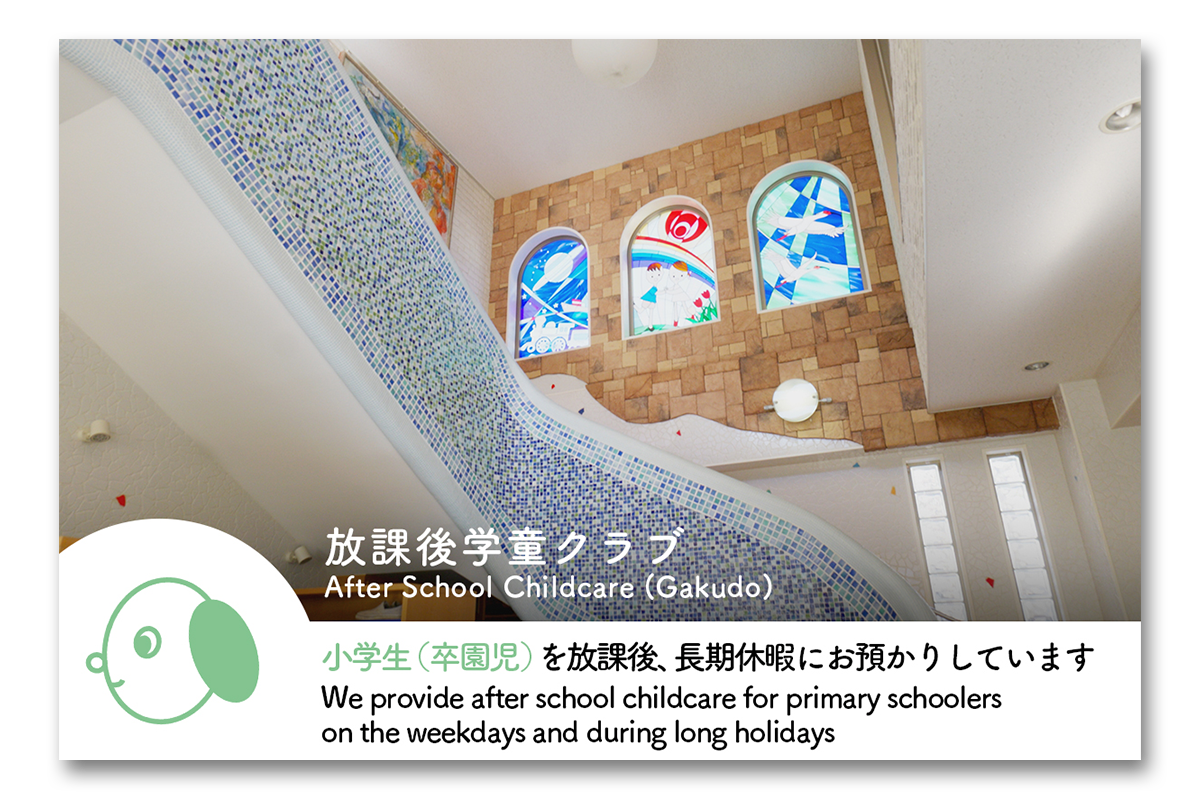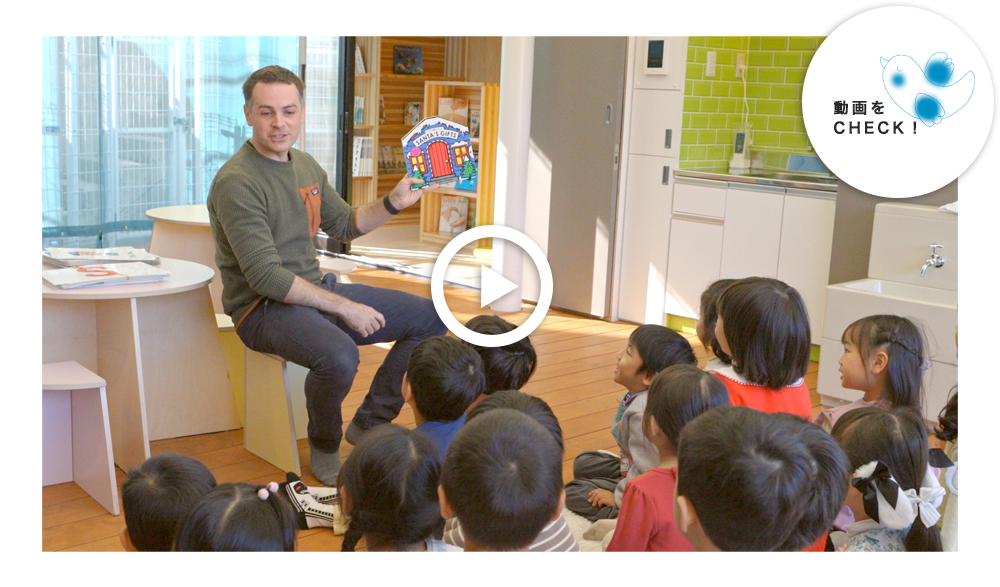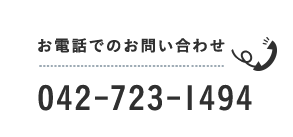
輝く未来の基礎づくりBuilding the foundation for bright futures
町田こばと幼稚園は、子ども達が自分で考え、自分で工夫して遊ぶ「自由遊び」を大切にし、生き生きと積極的に「せかい」にかかわる子どもを育みます。
グループやクラス単位、学年単位での一斉活動は、国際バカロレア(IB)の枠組みを取り入れ、「探究活動」をメインに進めます。
これらふたつが柱となる多様な経験を通して、自身の学びに責任をもち、思いやりをもって社会に貢献できる若者の育成を目指しています。
At Machida Kobato, we take “free play” which comes from children’s
natural curiosity and enthusiasm important, to nurture children to be actively involved with the world
around
them.
Adopting the framework of IB programme in the curriculum work in
groups of role class and/or year class, which proceed mainly with inquiry activities.
Through various experience with these two pillars, we encourage
children to develop their ownership of their learning, to become active, compassionate and lifelong learners
who
understand that other people, with their differences, can also be right.
お知らせNews
説明会・見学会Information Session
 クラブオリーブ
クラブオリーブ
国際バカロレア(IB)認定校の取組み
~園長ご挨拶~ Approaches to IB Education

「世界水準の教育を」
町田こばと幼稚園は、2017年より教職員一丸となって未来を育むことを願い、東京都の一条校初の国際バカロレア(以下IB)プライマリーイヤーズプログラム(以下PYP)認定校を目指しました。
2年間のIBワールドスクール(IB認定校)候補校期間を経て、2019年3月18日、国内の一条校で3園目、東京都では初の認定校となりました。
On the 18th March 2019, our long contribution of childhood education programme has been recognized and we became an authorized Primary Years Programme (PYP) IB (International Baccalaureate) World School.
We became the first kindergarten in metropolitan Tokyo certified both by IB and the Japanese government*, and the third such facility nationwide.
*Certified by the Japanese government: Schools defined as primarily legitimated schools Article 1 of the School Education Act
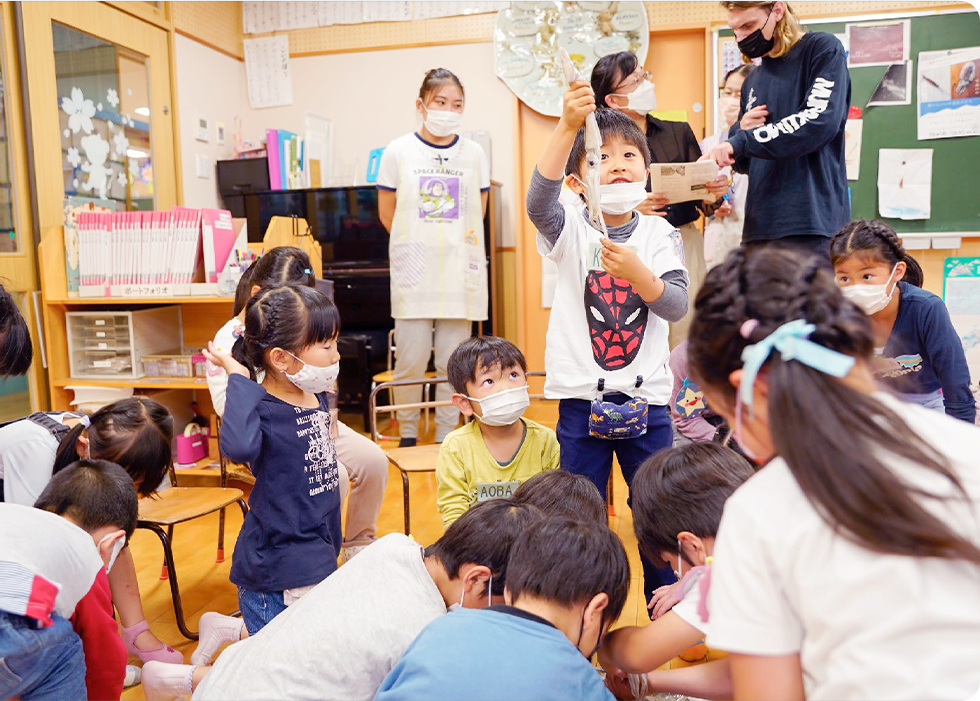
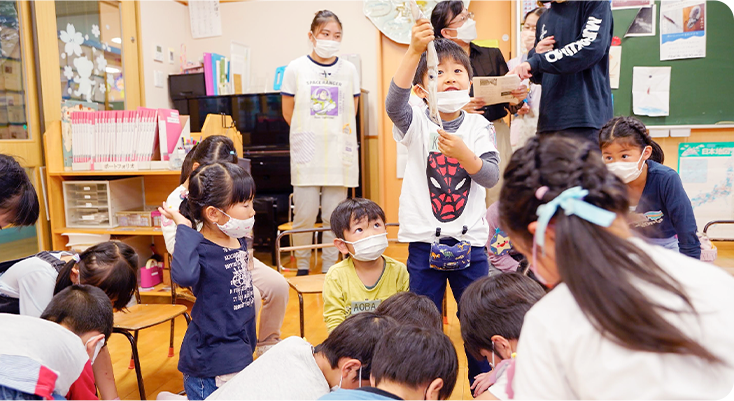
国際バカロレア(IB)とは?What is International Baccalaureate (IB)?
国際バカロレアはもともと、それぞれの国の制度を超えて、高等学校の卒業資格にあたる基準を統一化する目的で作られました。
高等学校の卒業資格というのは、国によって制度が異なります。
日本のように教育課程を修了することで入学が認められる制度もあれば、高等学校の終わりに「卒業試験」を受験し、その点数をもとに面接などを経て大学に入学する場合など様々ですが、大学のグローバル化が進む中、世界の大学は色々な国から統一した基準で優秀な学生を獲得するための手段として、国際バカロレアのディプロマプログラムの卒業資格を取得することにより、生徒は国内の大学のみならず、海外の有名大学への進学が可能になります。
近年、日本でもこの進学方法を取り入れる大学が増えています。
近年、日本でもこの進学方法を取り入れる大学が増えています。
The objective of this programme was to "provide an internationally
acceptable university admissions qualification suitable for the growing mobile population of young people whose
parents were part of the world of diplomacy, international and multi-national organizations" by offering
standardized courses and assessments for students aged 16 to 19.
In recent years, number of universities in Japan adopting this
programmes are increasing.


